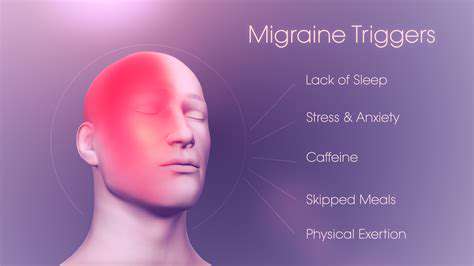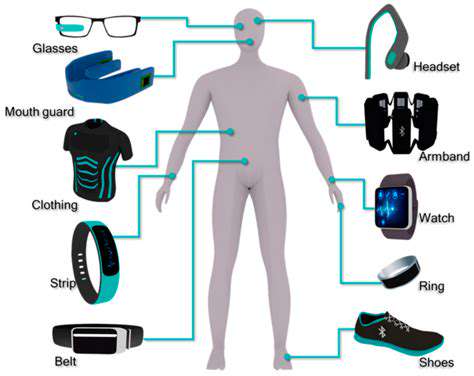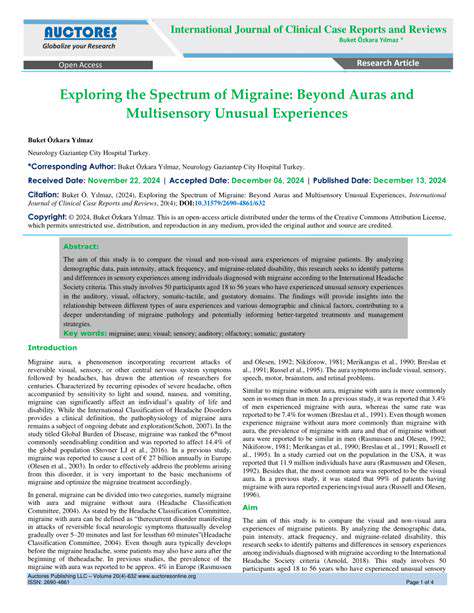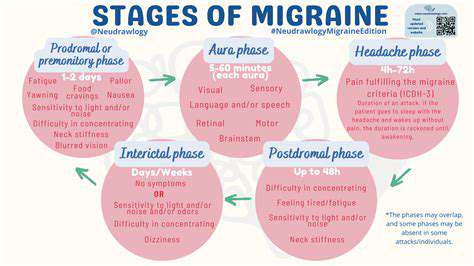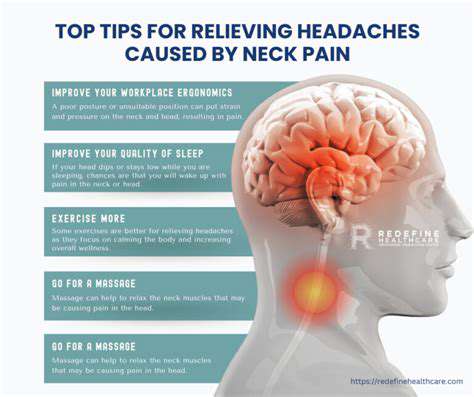Q&A: Natural Remedies for Headaches Explained
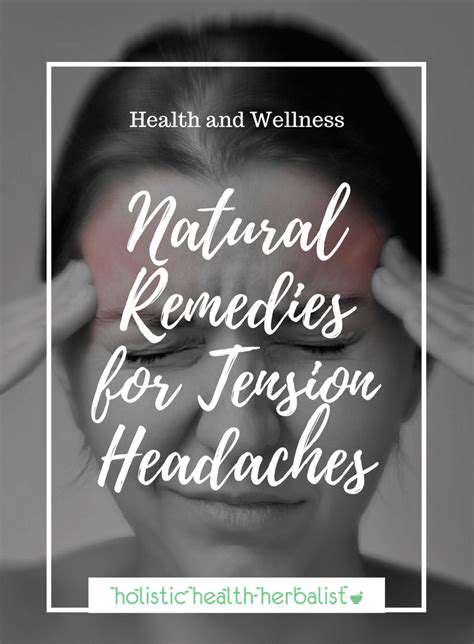
Understanding Tension Headaches
Tension headaches are incredibly common, affecting millions globally. They're typically characterized by a dull, aching pain that can range from mild to severe, often described as a band-like tightness around the head. This type of headache is frequently triggered by stress, anxiety, or poor posture.
Understanding the underlying causes is crucial for effective management. Stressful situations, both physical and emotional, can play a significant role in triggering tension headaches. Furthermore, poor posture, dehydration, and even lack of sleep can contribute to the development of these headaches.
Dietary Approaches
Certain foods and drinks can contribute to or exacerbate tension headaches. For instance, consuming excessive amounts of caffeine or alcohol can trigger headaches in susceptible individuals. Maintaining a balanced diet rich in fruits, vegetables, and whole grains can help promote overall well-being and potentially reduce the frequency of tension headaches.
A diet rich in magnesium, known for its role in muscle relaxation, could be beneficial. Foods like leafy greens, nuts, and seeds are excellent sources of magnesium and might help alleviate the pain associated with tension headaches.
Hydration and Relaxation Techniques
Staying adequately hydrated is essential for overall health and can significantly impact headache frequency. Dehydration can often lead to muscle tension, further contributing to headache symptoms. Carrying a water bottle and consciously drinking water throughout the day can be a simple yet effective strategy.
Practicing relaxation techniques, such as deep breathing exercises and meditation, can help manage stress and tension. These techniques can promote a sense of calm and well-being, potentially reducing the likelihood of tension headaches.
Lifestyle Adjustments
Regular exercise is a cornerstone of good health and plays a vital role in managing tension headaches. Physical activity helps reduce stress, improve circulation, and promote overall relaxation, all factors that can contribute to a reduction in headache frequency. Making time for regular physical activity, even if it's just a brisk walk, can make a real difference.
Adequate sleep is critical for both physical and mental well-being. A consistent sleep schedule, along with a relaxing bedtime routine, can help regulate the body's natural rhythms and reduce stress levels, minimizing the risk of tension headaches.
Herbal Remedies
Certain herbal remedies have shown promise in managing tension headaches. Chamomile tea, known for its calming properties, can help reduce stress and promote relaxation. Other herbs, such as ginger or peppermint, might offer relief from pain and muscle tension. However, consulting a healthcare professional before using herbal remedies is crucial.
Always consult a doctor before incorporating any new remedies into your routine, especially if you have underlying health conditions. Herbal remedies may interact with other medications, and it's essential to ensure they are safe and suitable for your individual needs.
Mindfulness and Stress Management
Mindfulness practices, such as meditation and yoga, can help individuals become more aware of their thoughts and emotions, enabling them to better manage stress. Regular practice can help to reduce feelings of anxiety, a common trigger for tension headaches. These practices can provide a powerful tool for managing stress and improving overall well-being.
By incorporating mindfulness into your daily life, you can develop coping mechanisms for stress and anxiety, ultimately reducing the frequency and intensity of tension headaches. Consistent effort and patience are key to reaping the benefits of these practices.
Dietary Considerations for Headache Prevention: What to Eat and Avoid

Dietary Triggers
Many individuals experience headaches triggered by specific dietary components. Common culprits include processed foods, excessive caffeine, and certain types of alcohol. Understanding these triggers can be crucial for preventing future headaches. Identifying and eliminating these foods can significantly reduce the frequency and intensity of headache episodes.
Food additives, such as MSG (monosodium glutamate), are also frequently implicated in headache episodes. Furthermore, skipping meals or eating meals at irregular intervals can also lead to headaches in some individuals. Maintaining a consistent eating schedule can be a valuable preventative measure.
Hydration and Headaches
Proper hydration plays a vital role in overall health, and it's no different when it comes to headache prevention. Dehydration is a known headache trigger, often leading to tension-type headaches. Staying well-hydrated throughout the day is essential. Carry a water bottle and sip on water regularly, especially during physical activity or in hot weather.
Sugar and Refined Carbohydrates
Fluctuations in blood sugar levels can sometimes trigger headaches. A diet high in sugary foods or refined carbohydrates can lead to these fluctuations. This is because these foods often cause rapid spikes and subsequent drops in blood sugar. Prioritize complex carbohydrates and whole grains for sustained energy levels and a more stable blood sugar profile.
Reducing your intake of sugary snacks and desserts can significantly help. Choose whole fruits and vegetables over sugary snacks for a healthier alternative.
Caffeine and Headaches
Caffeine, while often enjoyed for its stimulating effects, can also be a headache trigger. Some individuals are sensitive to caffeine and experience headaches when they reduce or withdraw from it. Excessive caffeine consumption can also lead to headaches in both the short and long term. Monitoring your caffeine intake and looking for patterns in your headache triggers is crucial.
Nutritional Deficiencies
Certain nutritional deficiencies can contribute to headaches, particularly migraines. Magnesium, for instance, plays a crucial role in nerve function and muscle relaxation. A lack of magnesium can potentially trigger or worsen headaches. Consulting a healthcare professional about potential deficiencies is essential, especially if you suspect a nutritional imbalance might be contributing to your headaches.
Stress and Diet
Stress can significantly impact both physical and mental well-being, and it can also influence your diet. Stressful situations can lead to poor dietary choices, including overeating or consuming unhealthy foods. This can, in turn, contribute to headaches. Finding healthy stress-management techniques, such as exercise or mindfulness, can have a positive impact on both your diet and your headache frequency.
The Role of Food Sensitivity
Many individuals experience headaches as a result of food sensitivities or intolerances. These sensitivities can manifest in various ways, from digestive issues to headaches. Identifying specific food triggers through careful observation and potentially testing is key to managing headaches effectively. Keeping a food diary to track your diet and headache patterns can help you identify patterns and understand the potential triggers.
Lifestyle Modifications for Headache Relief: A Comprehensive Approach
Dietary Changes for Headache Prevention
Adopting a balanced diet can significantly impact headache frequency and severity. Reducing processed foods, sugary drinks, and excessive caffeine intake can often lead to fewer headaches. Focusing on whole, unprocessed foods like fruits, vegetables, and lean proteins is crucial for overall health and can contribute to reducing headache triggers. Consider keeping a food diary to identify potential triggers in your diet. For example, if you consistently experience headaches after consuming chocolate, you might want to limit or eliminate it from your diet.
Hydration is also key. Staying properly hydrated helps maintain healthy blood flow and can prevent headaches caused by dehydration. Carry a water bottle with you throughout the day and make a conscious effort to drink water regularly, especially during physical activity or in warm weather. A lack of water can often lead to headaches. Monitoring your fluid intake is important to avoid headaches related to dehydration.
Stress Management Techniques for Headache Relief
Chronic stress is a significant headache trigger for many individuals. Incorporating stress-reducing activities into your daily routine can significantly decrease headache frequency. Techniques such as deep breathing exercises, meditation, yoga, or spending time in nature can help manage stress levels effectively. These activities can help calm the nervous system, reducing the tension and pain that often lead to headaches.
Finding healthy ways to manage stress is essential for overall well-being and headache prevention. Regular exercise, spending time with loved ones, and pursuing hobbies you enjoy can also help to reduce stress levels and improve your overall mood. It's about finding activities that help you relax and disconnect from daily stressors.
Regular Exercise and Physical Activity
Regular physical activity is not only beneficial for overall health but can also help prevent and alleviate headaches. Engaging in moderate-intensity exercise, such as brisk walking, swimming, or cycling, can release endorphins, which have pain-relieving properties. Consistent exercise can also improve blood flow to the brain, potentially reducing headache triggers. Aim for at least 30 minutes of moderate-intensity exercise most days of the week.
Sleep Hygiene and Adequate Rest
Adequate sleep is crucial for overall health and can play a significant role in preventing headaches. Establishing a consistent sleep schedule, creating a relaxing bedtime routine, and ensuring a dark, quiet, and comfortable sleep environment can greatly improve sleep quality. Aim for 7-9 hours of quality sleep per night to allow your body to repair and restore itself, which can help prevent headaches.
Ergonomics and Posture for Headache Prevention
Maintaining good posture and proper ergonomics, especially when working at a desk or engaging in activities that require prolonged sitting, can prevent headaches. Poor posture can strain neck and shoulder muscles, leading to tension headaches. Use ergonomic furniture and adjust your workstation to ensure proper alignment. Taking regular breaks throughout the day to stretch and move your body can also help alleviate tension.
Importance of Regular Check-ups and Medical Advice
While lifestyle modifications can be effective for many headache sufferers, it's essential to consult with a healthcare professional for a proper diagnosis and personalized treatment plan. If headaches are severe, frequent, or accompanied by other symptoms, seeking medical attention is crucial. A doctor can help determine the underlying cause of your headaches and recommend appropriate treatments, including medication or further diagnostic tests.

